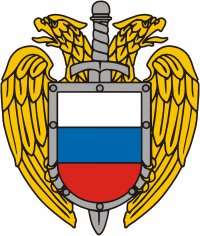|
|

Federal protective service, the FSOChief — Yevgeny MurovThe Federal Protective Service (FSO) is a federal government agency concerned with the tasks related to the protection of several, mandated by the relevant law, high-ranking state officials, including the President of Russia, as well as certain federal properties. It traces its origin to the USSR's Ninth Chief Directorate of the KGB which guarded the Kremlin and key offices of the CPSU. The FSO was formerly known as the Main Administration for the Protection of the Russian Federation (GUO - Glavnoye Upravlenie Okhrani). Under Barsukov the GUO was transformed into a very powerful and capable organization with a staff 50-100 percent bigger than that of the Ninth Directorate, which included some 10,000 personnel. At Barsukov's initiative in 1992, GUO assumed responsibility for presidential communications [formerly run by FAPSI [Federal Government Communications and Information Agency]], with GUO alone deciding who gets ATS-1 and ATS-2 "hot lines." President Boris Yeltsin signed a decree on 19 June 1996 reorganized the GUO as the Federal Protection Service (FSO). The change was mandated by the law on state protection which regulated the provision of bodyguards to senior state officials. According to the law, the FSO and the Presidential Security Service (PSB) are under the command of the president. Their powers include the right, in relation to their duties, to conduct searches, check identity papers, make arrests, give orders to other state organs, enter premises without the owners' consent, ban access to public places, and recruit and use secret informants. It includes the Presidential Security Service service, though the latter is not listed as one of the structural units on the FSO official website. One of its units is the Kremlin Regiment. Since Since May 18, 2000, the agency is headed by General Yevgeny Murov. |
|||||

